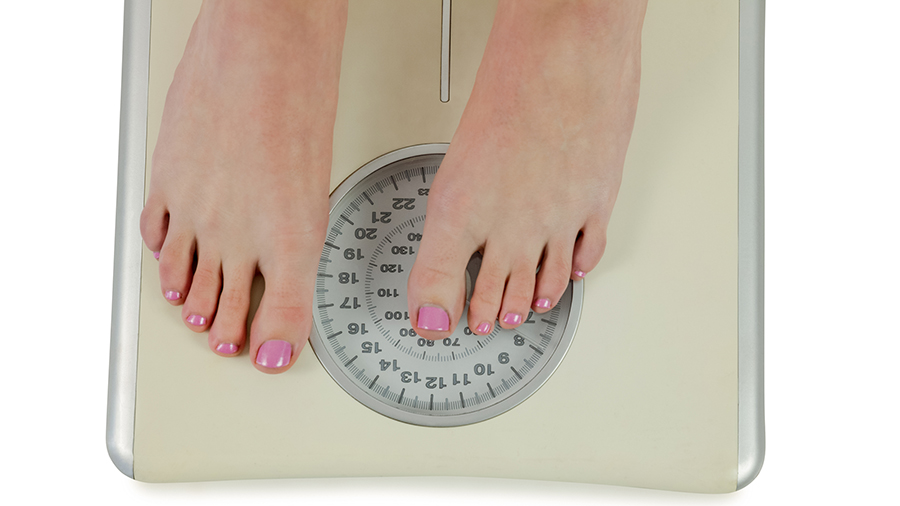Underweight Adults: Reasons, Risks and Recommendations
Table of Contents
Is My Weight Healthy?
If you weigh too much or too little this puts your health at risk. To determine if your weight is healthy, your doctor will calculate your BMI. While the BMI is an imperfect tool, it is a useful indicator of health for most people. The BMI is a weight for height ratio. This means that the BMI goes up the more you weigh, but down the taller you are.
A healthy weight is about more than just your appearance. A healthy body weight reduces your risk of certain illness and can increase your life expectancy.
BMI with Interpretation
| BMI (kg/m2) | Interpretation |
| Below 18.5 | Underweight |
| 18.5-24.9 | Healthy Weight |
| 25-29.9 | Overweight |
| 30-39.9 | Obese |
| 40 and above | Severely Obese |
What Are the Risks of Unhealthy Weight?
Health Risks of Being underweight:
- Vitamin deficiencies
- Fragile bones
- Weakened immune system
- Infertility
A healthy weight is about more than just your appearance. A healthy body weight reduces your risk of certain illness and can increase your life expectancy.
What Causes Weight Problems?
There are a number of reasons that you could be underweight.
- You aren’t eating enough food.
- You aren’t eating healthy foods.
- You have dieted to lose weight and have gone too far.
- Decreased appetite due to stress, anxiety or depression.
- You may have an eating disorder.
- Medication side effect
- You may have an untreated medical problem such as:
- Hyperthyroidism
- Medication side effects
- Alcohol or other substance misuse
- Diabetes
- Dental problems such as sores in the mouth or not enough teeth
- Addison’s disease–a hormonal disorder where your adrenal glands are not functioning properly
- Swallowing problems
- Various gastrointestinal problems such as an ulcer, inflammatory bowel disease, or celiac disease
- Chronic diarrhea
- HIV/AIDS
- Dementia
- Cancer
- Anorexia Nervosa
It is not yet clear whether chemical exposures or differences in our intestinal bacteria (microbiome) contribute to weight imbalances. Research is ongoing.
What Can I Do to Get To A Healthy Weight?
Being underweight is a lot less common than being overweight. In most cases, having unexplained weight loss is linked to a medical, psychiatric or social problem causing emotional distress. If you are underweight and your doctor determines that this is not caused by a medical problem, you may be referred to a nutritionist for counseling on healthy eating habits. Your doctor may also recommend high caloric drinks to ensure you do not become deficient in your nutrients. Medications to boost your appetite are usually only given to seriously ill patients, such as cancer survivors.
In most cases, having unexplained weight loss is linked to a medical, psychiatric or social problem causing emotional distress. Medications to boost your appetite are usually only given to seriously ill patients, such as cancer survivors.
What Dietary Changes Are Needed To Gain Weight?
Be sure you have talked to your doctor and been evaluated to determine why you are underweight. If there is an underlying problem, that needs to be addressed, not just the weight problem.
In order to gain weight, the main strategy is to increase your caloric intake. The best way to do this is to increase your calorie density. A food with a higher calorie density has more calories per weight. So, something with 10 calories per bite is more dense than something with 5 calories per bite. It can be hard to eat enough food to gain weight if your food isn’t calorie dense.
Strategies for Weight Gain
- Avoid “empty calories” like sugar and other junk food.
- If you find it difficult to eat a large meal, try eating small meals frequently during the day.
- Add nuts or seeds to your foods. For example, sprinkle them onto your salad, pasta or other dishes.
- Try eating more whole grains such as whole grain bread and brown rice than white bread or rice.
- Eat high protein foods like lean meats, hummus, peanut butter, trail mix, protein bars.
- Add vegetable oil to foods to make it calorie dense. For example, adding a little olive oil to your pasta sauce is healthy and increases the calorie density.
- Adding nonfat milk powder to foods can also increase the calorie density. You can add this to oatmeal, for example.
Written by: myObMD team |Editor: Dayna Smith MD |Reviewed: December 18, 2020 Copyright: myObMD, 2020
References
- Defining adult overweight and obesity. Centers for Disease Control, Division of Nutrition, Physical Activity, and Obesity, National Center for Chronic Disease Prevention and Health Promotion. Reviewed September 17, 2020. Accessed November 14, 2020.
- Obesity and cancer. The National Cancer Institute. Reviewed January 17, 2017. Accessed November 14, 2020.
- Adult obesity causes and consequences. Centers for Disease Control, Division of Nutrition, Physical Activity, and Obesity, National Center for Chronic Disease Prevention and Health Promotion. Reviewed September 17, 2020. Accessed November 14, 2020.
- Underweight adults. NHS. Reviewed April 21, 2020. Accessed November 14, 2020.
- Top 10 Things to Know About the Second Edition of the Physical Activity Guidelines for Americans. US Department of Health and Human Services, Office of Disease Prevention and Health Promotion. Last updated October 7, 2020. Accessed November 15, 2020.
- U.S. Department of Health and Human Services and U.S. Department of Agriculture. 2015 – 2020 Dietary Guidelines for Americans. 8th Edition. December 2015.
- Healthy ways to gain weight if you’re underweight. American Academy of Family Physicians. Updated August 13, 2020. Accessed November 18, 2020.
- Perreault L. Patient education: Losing weight (Beyond the Basics). In: UpToDate, Post TW (Ed), UpToDate, Waltham, MA. Updated February 19, 2020. Accessed on November 18, 2020.
- Perreault l. Obesity in adults: Drug therapy. In: UpToDate, Post TW (Ed), UpToDate, Waltham, MA. Updated August 24, 2020. Accessed on November 18, 2020.
- Lim RB. Patient education: Weight loss surgery and procedures (Beyond the Basics). In: UpToDate, Post TW (Ed), UpToDate, Waltham, MA. Updated January 7, 2020. Accessed on November 18, 2020.
- Lim RB.Bariatric operations for management of obesity: Indications and preoperative preparation. In: UpToDate, Post TW (Ed), UpToDate, Waltham, MA. Updated April, 2020. Accessed on November 18, 2020.


